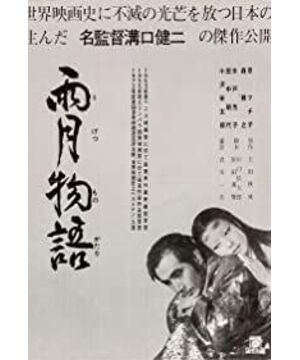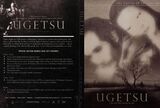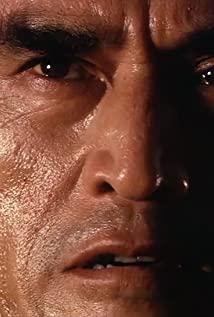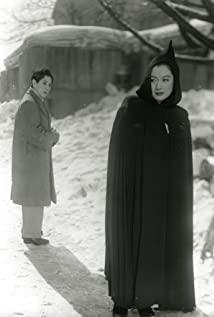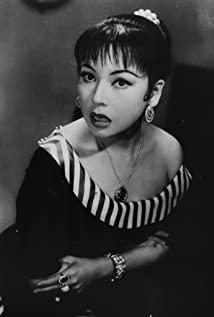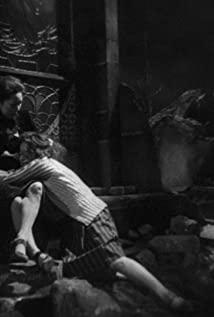Last night, I spent the night on the sofa watching a Japanese movie from 1953 called "The Story of the Rain Moon".
The historical background of "Story of the Rainy Moon" is the Warring States Period. In a small mountain village near Lake Biwa, there lived Genjuro and his wife Miyagi, as well as his brother-in-law, Fujibee, and his younger sister, Abin. They make a living by opening small kilns and firing porcelain. Once, Genjuro sold the porcelain to the town and made a lot of money, which made Tojuro full of confidence in making a fortune. At this time, war broke out, and Genjuro did not care about running for his life. Fujibei dreams of becoming a samurai and getting ahead.
When Genjuro took Fujibei and Abin to town for the second time, a beautiful noble lady, Wakasa, took a fancy to his porcelain and asked him to deliver it to his door. After Genjuro came to the door as promised, Wakasa not only admired his porcelain, but also took the initiative to marry him. Genjuro lived happily in Wakasa's mansion.
And Fujibei, who helped Genjuro sell goods, ignored his wife's pleading, bought armor with the money from the sales, defected to a lord, and became a samurai. During one battle, he stalked a defeated enemy general. The general was cornered and asked his subordinates to chop off his head. Fujibei took the opportunity to kill this subordinate and snatched the head of the enemy general, falsely claiming that he cut it down, and was rewarded by the daimyo.
One day, Genjuro took Wakasa's money to buy something, but was rejected by the merchant in fear; a monk on Lu Yu saw the death breath on his face and asked him if he had encountered something unclean. Persuade him to go home quickly. Genjuro did not listen to the advice, and the monk wrote many spells on him. After returning to Wakasa's house, he confessed that he had a wife and children and asked to go home. Sure enough, the young lady and her old servant turned against him and tried to murder him. Fortunately, he had a spell protection on his body and was not hurt.
The next day, Genjuro woke up in the ruins and was convinced of the monk's words. Genjuro returned home empty-handed. His wife, Miyagi, happily greeted him at home. Early the next morning, the village chief who came to hear the news came to the door and informed him that Gong Mu had long since died in the chaos. The child survived under the care of everyone. Genjuro was deeply saddened, and since then he has continued to make porcelain as a business with peace of mind and to support his children.
Fujibei returned to his hometown with his guards, and encountered a brothel on the way. He was invited to stop and have fun, but he did not expect to meet his wife. It turned out that his wife encountered rebels in her hometown, and after being LJ, she was reduced to here and started a life of flesh and blood. Fujibei suddenly felt emptiness, gave up his glory and wealth and brought his wife back to his hometown, and led an ordinary life.
In any country, troubled times are tragic after all. During the Warring States Period in Japan, human life was like a must. A few little people are working hard and fighting hard, and that era is an illusion after all.
Many plots of this film are similar to "Strange Tales from a Liaozhai". Check the information, it really comes from China. "The Tale of the Rain Moon" is a legendary novel with a pivotal position in the history of Japanese literature, and is a representative work of "reading novels". "Story of the Rainy Moon" is adapted from "Scissoring the Lamp" and "Three Words", and consists of nine strange novels in five volumes. The first draft was completed in 1768 and published eight years later. The origin of its title is generally believed to come from the sentence "The sky is cloudy and rainy in the wet night, and the moon sets in the morning" in "Peony Lanterns". "Rainy and Wet Night" and "Shenyang Morning" are exactly the time when ghosts and ghosts appear, and the word "Rainy Moon" is used to reflect the dreamy and dark background of the story.
The Japanese often do this kind of adaptation. I remember watching Kurosawa Akira's films "Ran" and "Spider Nest City" with a longing mood, and it looks like deja vu. It turned out that "Chaos" was adapted from "King Lear", and "Spider's Nest" was adapted from "Macbeth". It is to change the storyline to the Middle Ages in Japan, and the characters to the Japanese. I don't know why they changed it this way, why are they not accused, but regarded as classics? If you stay here with us today, wouldn't you be scolded to death?
View more about Ugetsu reviews


